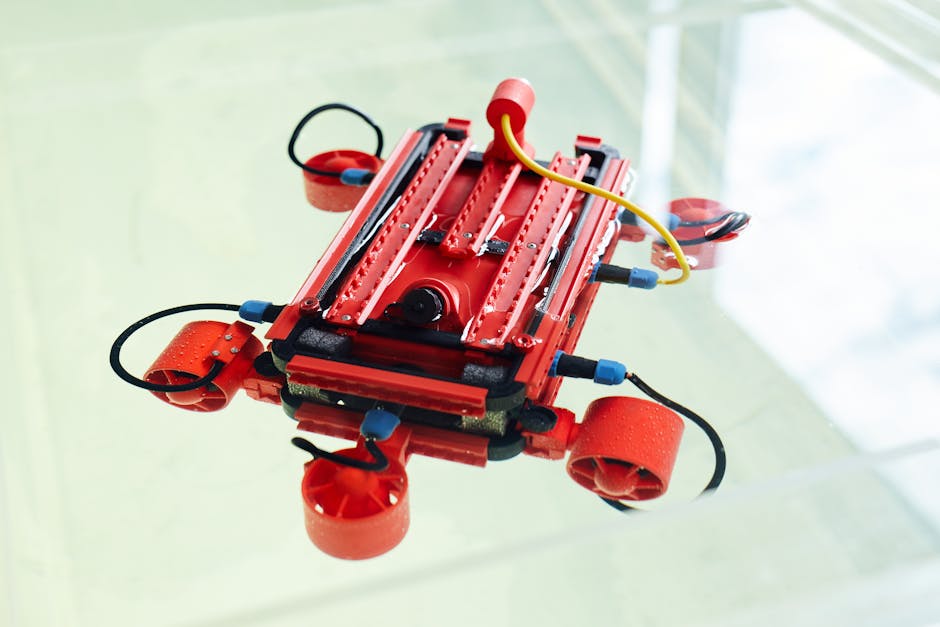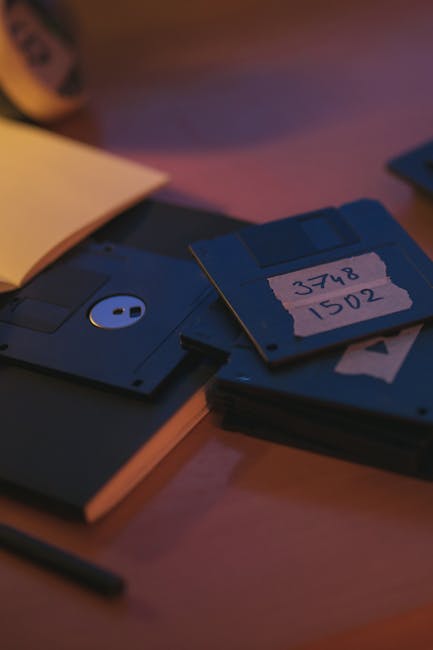Unlock encrypted content
Please enter your SSCE key to initiate on-the-fly decryption.
Decryption key: (Click cancel if you don't have the key)
Copied link to clipboard.
This feature is unavailable for free accounts. Upgrade now and enjoy all Premium benefits.
Go Premium!
This feature is unavailable for free accounts. Upgrade now and enjoy all Premium benefits.
Go Premium!
Please open this page in browser ( Google Chrome or Safari ) to use this feature.
Open In Browser
Futuristic File Management: Uploading the Human Brain to Cloud Storage
Random related video for this blog.
Copied share link to clipboard.
From cyborgs and androids to genetic engineering, the boundaries between humans and machines are becoming increasingly blurred. One particularly intriguing concept that has captured the imagination of both scientists and science fiction enthusiasts alike is the idea of uploading the human brain or memory to cloud storage. This revolutionary concept has the potential to transform the way we store, access, and share information. In this article, we will explore the exciting possibilities of this futuristic file management concept.
The Potential of Uploading the Human Brain to Cloud Storage
Imagine a world where your memories, thoughts, and experiences can be stored in a digital format and accessed at any time. This is the promise of uploading the human brain to cloud storage. By converting the intricate workings of the brain into digital data, individuals would have the ability to preserve their memories and experiences for future generations. This has the potential to revolutionize the way we think about identity, consciousness, and even immortality. One of the key benefits of uploading the human brain to cloud storage is the ability to access and share information effortlessly. With a few clicks, individuals could grant read-only access to their memories, allowing others to experience their perspective and gain unique insights. This could be particularly valuable for educational purposes, as students could learn directly from the experiences of historical figures or experts in various fields.File Preview and Thumbnail Generation: Enhancing the Digital Experience
In order to make the vast amounts of uploaded brain data manageable and easily accessible, advanced file management tools would be required. One such tool is file preview and thumbnail generation. By automatically generating visual representations of brain data, users would be able to quickly navigate and identify specific memories or experiences. This would greatly enhance the overall user experience andmake browsing through vast amounts of information a seamless process. Furthermore, file preview and thumbnail generation could have practical applications beyond brain data. For example, in the field of photo storage, this technology could automatically generate thumbnails for large collections of images, making it easier to locate specific photos. Similarly, in the realm of video sharing, this feature could provide users with a visual overview of their video library, enabling them to quickly identify and access the desired content.
Mobile File Sharing: Empowering Collaboration and Connectivity
In a world where uploading the human brain to cloud storage is a reality, mobile file sharing would play a crucial role in facilitating collaboration and connectivity. By leveraging the power of smartphones and other mobile devices, individuals could easily share their brain data with others, regardless of their physical location. This would enable seamless collaboration on projects, research, and even artistic endeavors. For instance, imagine a group of scientists working on a breakthrough in a particular field. With mobile file sharing, they could instantly transfer their brain data to one another, allowing for real-time collaboration and brainstorming. This would greatly accelerate the pace of scientific discovery and innovation.Futuristic Gadgets and Advanced Downloading Tools: Making the Impossible Possible
As the concept of uploading the human brain to cloud storage becomes a reality, the need for futuristic gadgets and advanced downloading tools will arise. These technological advancements will be essential in ensuring a seamless and efficient transfer of brain data between individuals and devices. One such gadget could be a brain-interface device that allows for direct communication between the human brain and cloud storage. This device would facilitate the uploading and downloading of brain data, eliminating the need for traditional input methods such as keyboards or touchscreens. Additionally, advanced downloading tools would be necessary to ensure the privacy and security of brain data. Encryption file sharing, for example, would protect the sensitive nature of brain data and prevent unauthorized access. This would give individuals peace of mind knowing that their most personal and intimate thoughts and memories are secure.Cyborgs and Androids: The Future of Humanity
The concept of uploading the human brain to cloud storage raises profound questions about the future of humanity. As technology continues to advance, the line between humans and machines becomes increasingly blurred. Cyborgs, individuals with both biological and artificial components, and androids, fully artificial beings with human-like characteristics, may become a reality sooner than we think. By uploading the human brain to cloud storage, individuals could potentially transfer their consciousness into a cyborg or android body. This would open up a whole new realm of possibilities, from enhanced physical abilities to extended lifespans. However, it also raises ethical and philosophical dilemmas, as questions of identity and what it means to be human come into play.Conclusion
Uploading the human brain or memory to cloud storage is a concept that pushes the boundaries of what we thought was possible. It has the potential to revolutionize the way we store, access, and share information, and could even redefine our understanding of identity and consciousness. With advancements in file management, mobile file sharing, and futuristic gadgets, this futuristic concept may not be as far-fetched as it seems. As technology continues to advance, it is important to consider the ethical and philosophical implications of these advancements, ensuring that they align with our values and aspirations as a society.Frequently Asked Questions (FAQs)
Question: How can I upload my brain to cloud storage? Answer:
While the concept of uploading the human brain to cloud storage is currently in the realm of science fiction, researchers are exploring various avenues to make it a reality. It would require mapping the intricate neural connections and processes of the brain and converting them into digital data. This is a complex and challenging task that is still far from being achieved.
Question: What are the potential benefits of uploading the human brain to cloud storage? Answer:
Uploading the human brain to cloud storage could have numerous potential benefits. It could allow for the preservation of memories and experiences for future generations, facilitate educational experiences by granting access to historical figures' perspectives, and enable seamless collaboration and connectivity through mobile file sharing. It could also pave the way for advancements in cyborgs and androids, enhancing physical abilities and potentially extending lifespans.
Question: How would file management tools be enhanced for brain data? Answer:
File management tools for brain data would need to incorporate features such as file preview and thumbnail generation. These tools would automatically generate visual representations of brain data, making it easier to navigate and identify specific memories or experiences. Additionally, advanced downloading tools, such as encryption file sharing, would be necessary to ensure the privacy and security of brain data.
Case Studies Case Study 1: The Educational Potential of Brain Data Sharing In a groundbreaking study, researchers at a prominent university explored the educational potential of brain data sharing. They uploaded the brain data of renowned historical figures, such as Albert Einstein and Leonardo da Vinci, to cloud storage. Students were then given read-only access to these brain files, allowing them to experience the world through the eyes of these geniuses. The study found that this immersive learning experience significantly enhanced students' understanding and engagement with the material. Case Study 2: Advancements in Cyborg Technology A team of scientists and engineers at a leading tech company developed a breakthrough in cyborg technology. By uploading brain data to cloud storage and integrating it with artificial components, they created a prototype cyborg that exhibited enhanced physical abilities and cognitive functions. This development has significant implications for individuals with disabilities, as it offers the potential for improved mobility and quality of life. Case Study 3: The Ethical Debate on Brain Data Privacy As the concept of uploading the human brain to cloud storage gains traction, the ethical debate surrounding brain data privacy intensifies. A group of bioethicists and legal experts convened to discuss the implications of brain data sharing and the need for robust privacy measures. They emphasized the importance of informed consent, data encryption, and strict regulations to protect individuals' privacy and prevent unauthorized access to their most personal and intimate thoughts and memories.
By Amelia Isabella.
Email: [email protected]
Related
Advanced File Transfer and Storage Solutions: Enhancing Efficiency and Security
July 6, 2023
Read More
The Internet of Medical Things (IoMT): Revolutionizing Healthcare with Technology
July 6, 2023
Read More
Cutting-Edge Innovations: Exploring the Exciting World of Augmented Reality, Cyborgs,...
July 6, 2023
Read More
Biotechnology Collaborative: Revolutionizing Industries with Advanced Technologies
July 6, 2023
Read More
Internet of Medical Things (IoMT): Revolutionizing Healthcare through Connectivity and...
July 6, 2023
Read More
Popular
Latest
The Future of Digital Transformation: Exploring Smart Homes, Efficient File...
November 30, 2025
Read More
Exploring the Benefits of Cloud Storage and Innovative Technologies in...
November 26, 2025
Read More
The Future of Technology: Exploring Biohacking, Space Tourism, and Digital...
November 23, 2025
Read More
The Future of File Sharing: Streamlined Workflows for Photographers and...
November 19, 2025
Read More
Exploring the Intersection of Technology: From Cybersecurity to Augmented Reality...
November 16, 2025
Read More
The Future of File Management: Embracing Edge Computing and Efficient...
November 12, 2025
Read More
The Future of File Sharing: Exploring User-Friendly Solutions and Data...
November 5, 2025
Read More
The Future of Cloud Storage: How FileLu Empowers Creative Professionals...
November 2, 2025
Read More
The Future of Autonomous Technologies: Innovations in Robotics, File Sharing,...
October 29, 2025
Read More
Emerging Technologies Revolutionizing File Management: From Li-Fi to Robust Collaboration...
October 26, 2025
Read More
Emerging Technologies: Exploring the Impact of File Access Auditing, Genetic...
October 19, 2025
Read More
The Future of Data Storage: Exploring Advanced Encryption, Mobile Integration,...
October 5, 2025
Read More
Exploring the Future of Data Management: Security, Efficiency, and Cognitive...
September 28, 2025
Read More
Revolutionizing Data Management: Innovations in Storage, Security, and Sustainable Technology.
September 24, 2025
Read More



















